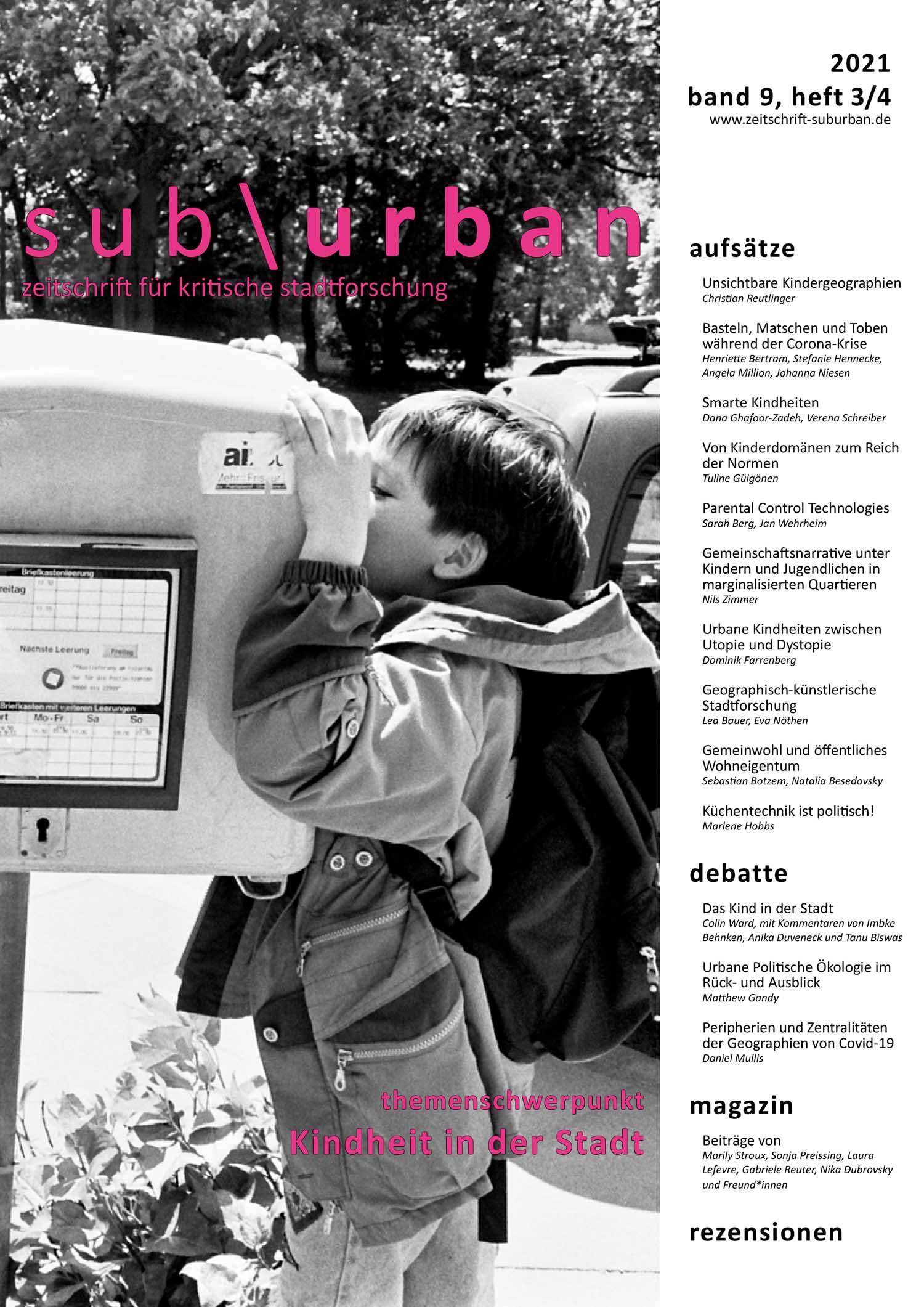Mini-Munich takes place. – Negotiation of urban space in the context of generational orders
Abstract
Making the processes of a city accessible to children and adolescents is one of the many aims of Mini Munich. Every two years during the first three weeks of the summer holidays, facilities and structures of a real city are recreated in the model-city and opened up to the creative possibilities of children. This article aims to give an insight into the pedagogical approach of Mini Munich and to provoke thoughts about how critical urban research could view model-city projects like Mini Munich.
The analysis of Mini Munich shows that children in dealing with the planning of mini-urban infrastructure reflect ethical notions of social justice and nature protection. In their negotiation, they also draw on societal discourses of urban ethics. At the same time, they have a hard time to implement their ideas in the real urban space, because it remains a space of generational order and hierarchies of power, which appropriation often requires the approval of adults.
Copyright
Als CC BY-SA 4.0 Lizenz dürfen die Inhalte unter den folgenden beiden Bedingungen vervielfältigt, verbreitet und öffentlich zugänglich gemacht werden: erstens der Nennung des Namen der Autor_innen und der Zeitschrift sub\urban, zweitens Weitergabe unter den gleichen rechtlichen Bedingungen, d.h. derselben Lizenz wie das Original (CC BY-SA). In jedem Fall bitten wir bei Weiterverwendung um eine Nachricht an info@zeitschrift-suburban.de.

